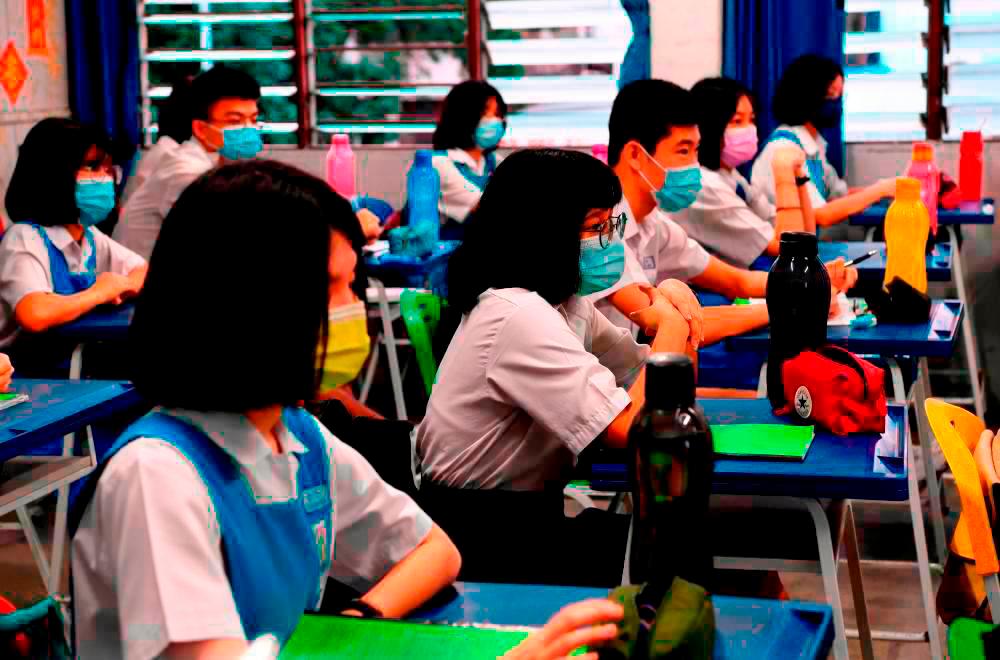WHEN the Ministry of Education (MOE) revealed 11,713 students achieved straight As in the SPM 2023 exams, they also declared it was a better achievement than the results for 2022.
While this was a cause for celebration, there was another statistic that provided a cause for concern – 10,160 students were absent from the SPM exams in 2023.
Thus, behind the scenes, there is much cause for concern.
This preoccupation with academic results continues to be a feature of the Malaysian education system, with many parents waiting anxiously for the release of the SPM results. My question looks at the issues hidden by the purely academic nature of the SPM exams.
The global market for education has surpassed purely academic skills and today, public speaking, general knowledge, leadership, the issues of sustainability and climate change have all become issues of 21st century classroom education.
But sadly, these issues are not part of the skills taught in most schools and instead, the focus is purely academic.
Should Malaysian government schools focus on other aspects of education, which have become equally important, such as the development of soft skills in students involving leadership training, looking at sustainability in terms of waste management, the environment and its preservation and other current issues that would impact their lives?
I was recently pleasantly surprised to receive an e-mail from a secondary school that had taken the initiative to organise an environmental and youth leadership summit at an international level, and received the support of the school principal and MOE to carry out a series of activities over five days last month, which included various competitions.
The school, SMK (P) Sri Aman in Petaling Jaya, where 16-year-old Raisa Myrin Jasmine, a member of the Sri Aman Environmental and English Youth Leadership Summit (SAEYLS) 2024, together with her committee, organised the summit for the purpose of raising awareness.
The participants were from Malaysia, Indonesia, the Philippines, the UK and Bangladesh, with 11 schools from five states in Malaysia.
Raisa, who holds the Chair for Publicity said: “SAEYLS was established in 2012 at Sri Aman, and ran as a physical event until the pandemic hit in 2020. Finally in 2024, SAEYLS returns as a physical event, ready to continue our legacy as a prestigious programme for the benefit of not only the school but also to position Malaysia, as a country, where the youth are ready to embrace and take on the challenge of climate change.
Its theme “Youth: The Root of Change” aims to unearth, hone and develop the communication skills and abilities of youth.
“This is to empower them to lead future communities to be highly conscious of Mother Nature’s state of being, as well as improve the quality of life for all beings on this planet,” she said.
The teacher supervisor for the project, Shahirah Nazaruddin, when commenting on the impact of the project, said: “Through this summit, we encourage our students to break out from their shells and discover the hidden potential that lies within them.”
According to SAEYLS Organising Vice-Chairperson Anis Batrisyia, 17, the various activities were also designed to encourage the participants to protect the environment by engaging in river clean-up activities, and a trip was made to the Klang River, that is listed as the third most polluted river in Malaysia.
Participants from the summit had the opportunity to participate in the clean-up of the river as well as observe the operation of the “Interceptor”, a machine brought in to specifically for the task, due to the high volume of plastic and other forms of waste.
Raisa said the activities were also centred on creating awareness, with an environmental competition, English public speaking competition, a tour of mangrove swamps and a briefing on its role in protecting the coast and even a water harvesting workshop, at which participants were introduced to the importance of water harvesting.
The SAEYLS environmental competition titled “Nature’s Resilience: Overcoming One Country’s Environmental Challenges” proved to be an eye-opener for the students as they considered issues affecting their own country’s environment.
“The English competition, which focused on public speaking, was titled “An Insight on the Significance of Culture” was to recognise that each of the invited countries had a culture of their own and we wanted to share and engage with them on their own culture,” added Raisa.
She said one of the main objectives of the summit that was achieved was the friendship and networking between the local and international students, who represented their schools while attending the event in Malaysia.
The exchange of information proved valuable and with 71 participants, not including the school community, there was no doubt the students would take home valuable lessons in friendship, knowledge and culture.
It was an experience that could not be replicated in a classroom.
Shahirah said academia was only one part of studies, whereas students today need other skills to survive and be part of a new eco-system that puts the environment at the top, and learn how to preserve nature and ensure the effects of climate change is minimised.
She expressed hope that other schools would organise similar activities that would benefit students in the long term.
“Another valuable factor with these types of programmes is the ability of students to learn new life skills such as fundraising, writing to organisations for sponsorship and juggling many activities at the same time as it teaches them multitasking.
“Such programmes by students for students serve as a valuable lesson for the whole community.
“The curriculum for students at all levels must include programmes that engage and involve students in 21st century learning,” she added.









